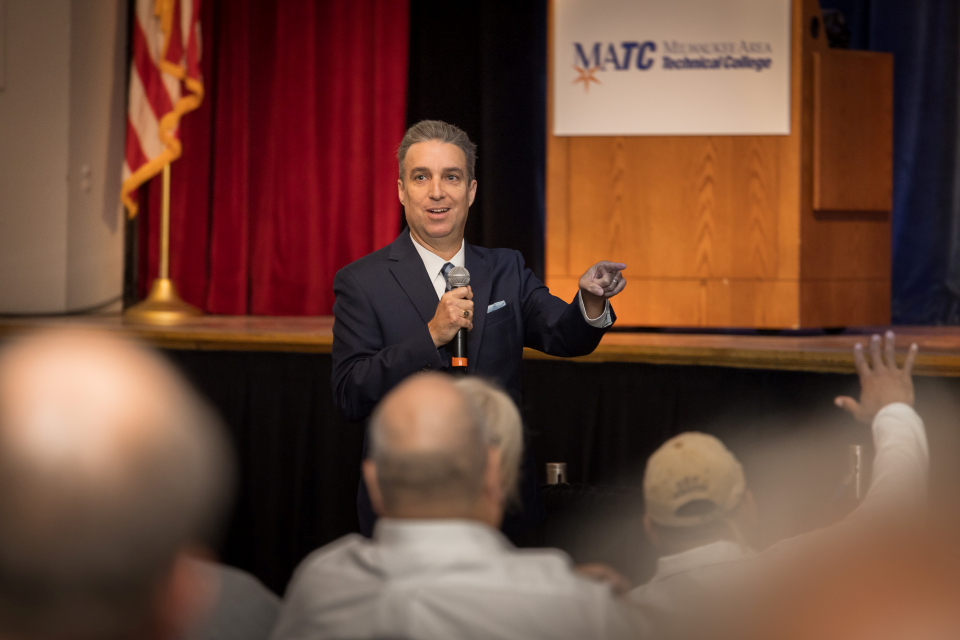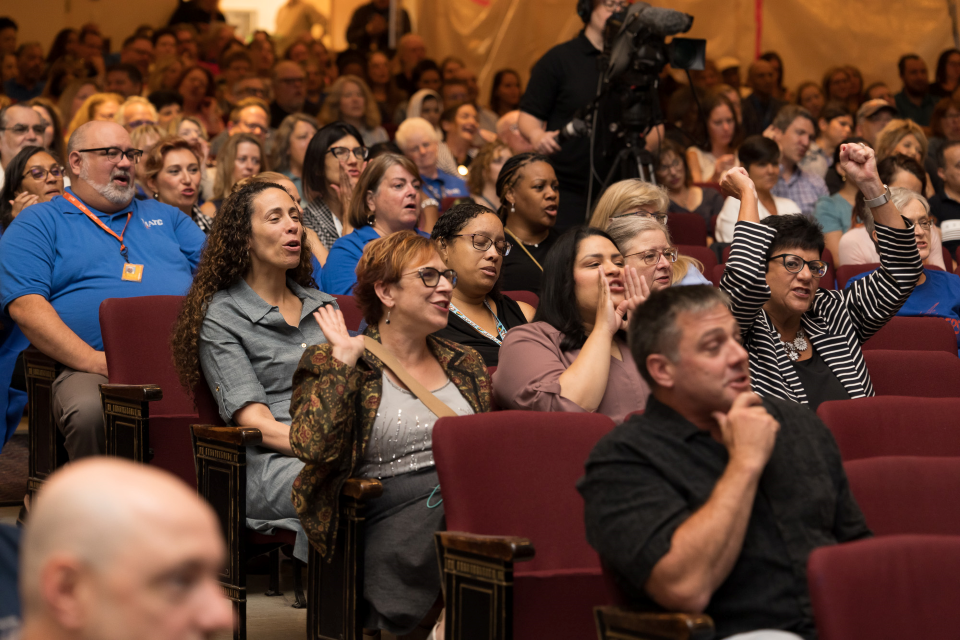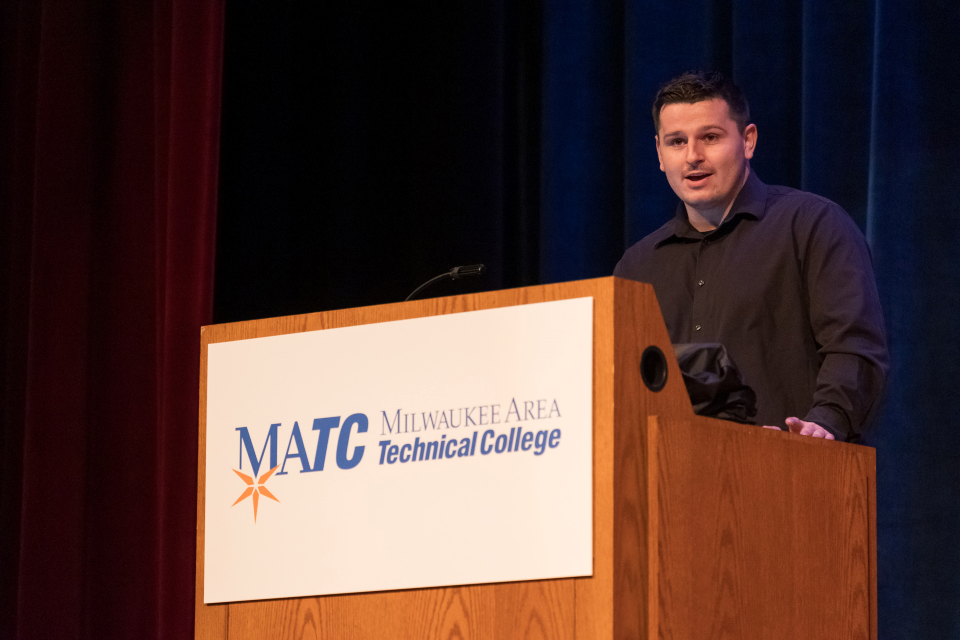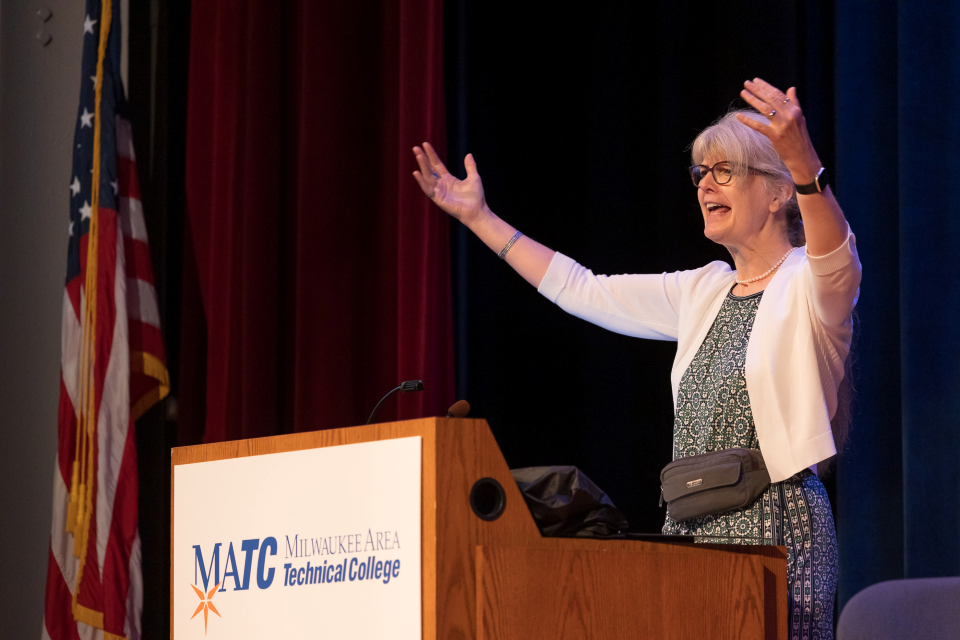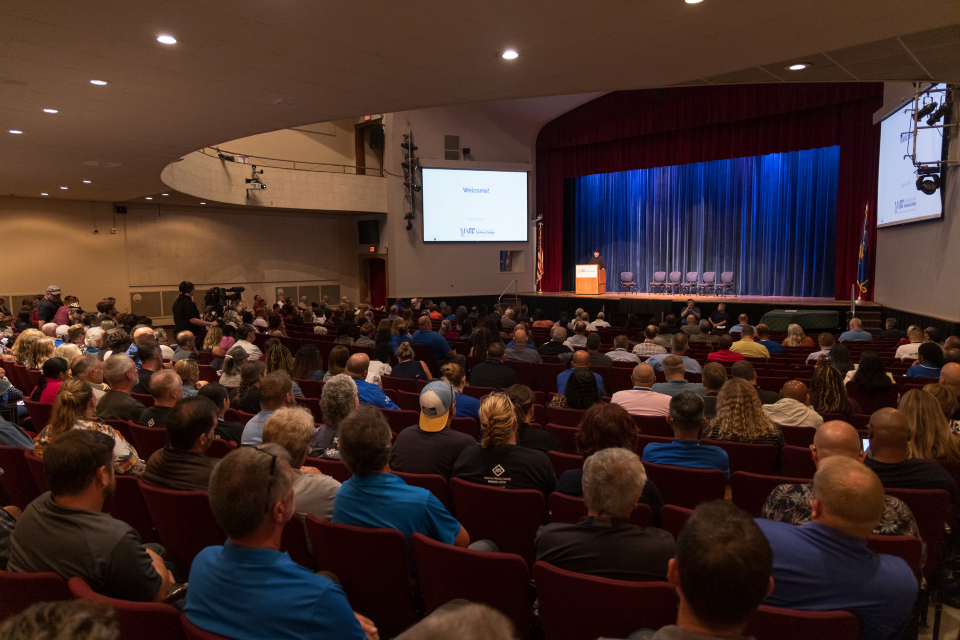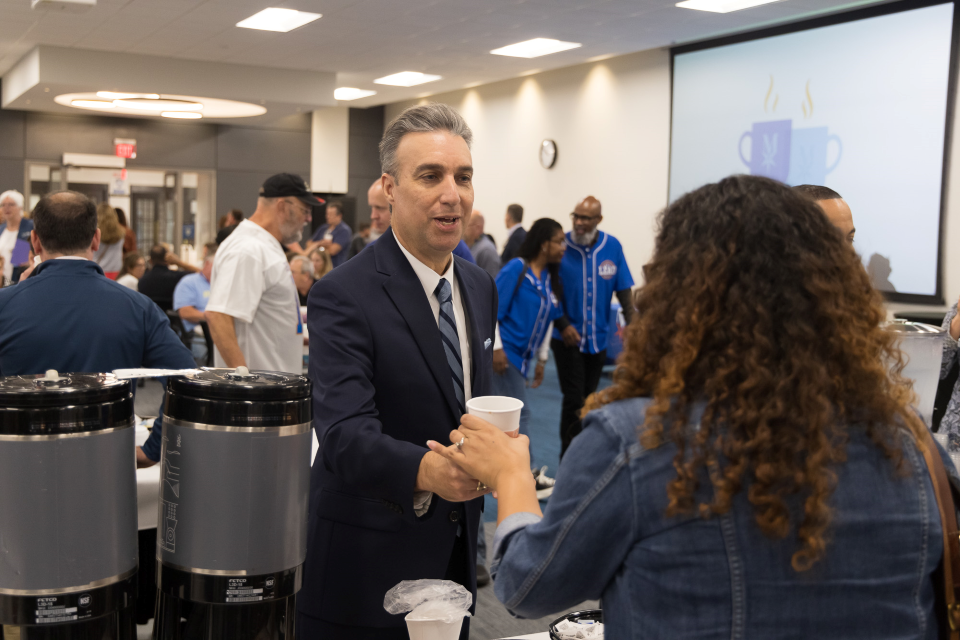We’re doing too many good things here to be the best-kept secret in Milwaukee.
The days of Milwaukee Area Technical College being a hidden gem, a diamond in the rough or a pleasant surprise, are done.
The college’s students, faculty and staff need to begin basking in the spotlight, according to new MATC President Anthony Cruz, Ed.D.
“We’re doing too many good things here to be the best-kept secret in Milwaukee,” said Dr. Cruz, who started as the college’s 11th president in July. “The community knows what we have done, what we’re doing and what we will do. We need to amplify and accelerate what we’re doing.
“But no matter how well we are doing, there will always be more for improvement,” he added. “There will always be room for growth.”
Dr. Cruz laid out a plan for growth on Thursday, August 15, during Coordination Day, an event that celebrates the start of the academic year.
In his first extensive remarks to the college’s full-time and part-time faculty, Dr. Cruz presented nine presidential goals for 2024-25 that dovetailed neatly with the event’s theme of “Mattering, Belonging and Innovation.”
“When we look at these goals together, they all truly center on better access to MATC, better success for students at MATC, and greater engagement as a college community,” Dr. Cruz said in Cooley Auditorium at the Downtown Milwaukee Campus.
The goals he presented were:
- Get more applicants admitted and registered.
- Enroll more Hispanic, Latino or Latina students as full-time, college-level students and move closer to becoming a Hispanic-Serving Institution.
- Help students earn credits in their first semester and reduce racial/ethnic gaps in earning credits.
- Help students pass classes and reduce racial/ethnic achievement gaps in pass rates.
- Help more students of color stay from Fall to Spring and reduce the gaps in persistence rates.
- Grow enrollment to 8,650 full-time equivalent (FTE) students.
- Expand and strengthen programs that put students on the path to living-wage jobs.
- Adopt and use artificial intelligence.
- Build a new strategic plan to guide the next five years.
“All of these things are building blocks to more graduates,” Dr. Cruz said. “That means getting more professionals into the workforce and impacting the community. We are pivotal in this effort and need to show we are at the forefront of it.”
Dr. Cruz pledged to provide any and all support to help realize those goals. “You are providing the instruction to our students. You are supporting them with academic and nonacademic services so they can be successful. You are creating the physical and virtual environments that help them thrive,” he said. “And when I support you, you can better support one another so you can support our students.”
Student Warren Murphy, who introduced Dr. Cruz at Thursday’s event, told the audience that after trying two other colleges, he finally found a place to fit in at MATC.
“I enjoyed learning, but I really struggled to find my place, and I found myself feeling increasingly isolated and lonely,” said Murphy, who is enrolled in the liberal arts transfer program and who previously attended two colleges in the state. “I came here and I assumed that loneliness and feeling left out were just part of college, that they were baked into the structure of every college. I couldn’t have been more wrong.”
At MATC, Murphy said his instructors have ensured he could afford materials, provided solutions to problems and helped him schedule classes around his hectic work schedule. He has joined the student government association and the college newspaper, the MATC Times.
“I truly feel like I have found where I belong,” Murphy said. “I feel like I matter, and I feel like that is in large part due to the atmosphere you all have created here at MATC.”
And the college’s faculty can be a big part in sustaining that atmosphere, said Dr. Lisa Conley, a biological sciences instructor and president of the American Federation of Teachers Local 212, the union that represents the college’s faculty.
“The past year was especially stressful and draining. It was a struggle to have students get to, participate in and succeed at their classes,” Dr. Conley told the crowd. “We can work on these issues together. When faculty is involved from the beginning, we can solve any challenges.”
Michael Rogers, the college’s vice president for diversity, equity and inclusion, moderated a panel of five faculty and staff members who discussed how they improve the sense of belonging for current and potential students.
The panelists suggested engaging in icebreaker exercises, rearranging the classroom, sharing their own stories and taking the time to care. “When you have a stake in the game, it elevates everyone,” said Gabe Schauf, an instructor in the Funeral Services program. “That can make all the difference.”
About MATC: As Wisconsin’s largest technical college and one of the most diverse two-year institutions in the Midwest, Milwaukee Area Technical College is a key driver of southeastern Wisconsin’s economy and has provided innovative education in the region since 1912. More than 30,000 students per year attend the college’s four campuses and community-based sites or learn online. MATC offers affordable and accessible education and training opportunities that empower and transform lives in the community. The college offers more than 180 academic programs — many that prepare students for jobs immediately upon completion and others that provide transfer options leading to bachelor’s degrees with more than 40 four-year colleges and universities. Overwhelmingly, MATC graduates build careers and businesses in southeastern Wisconsin. The college is accredited by the Higher Learning Commission.
